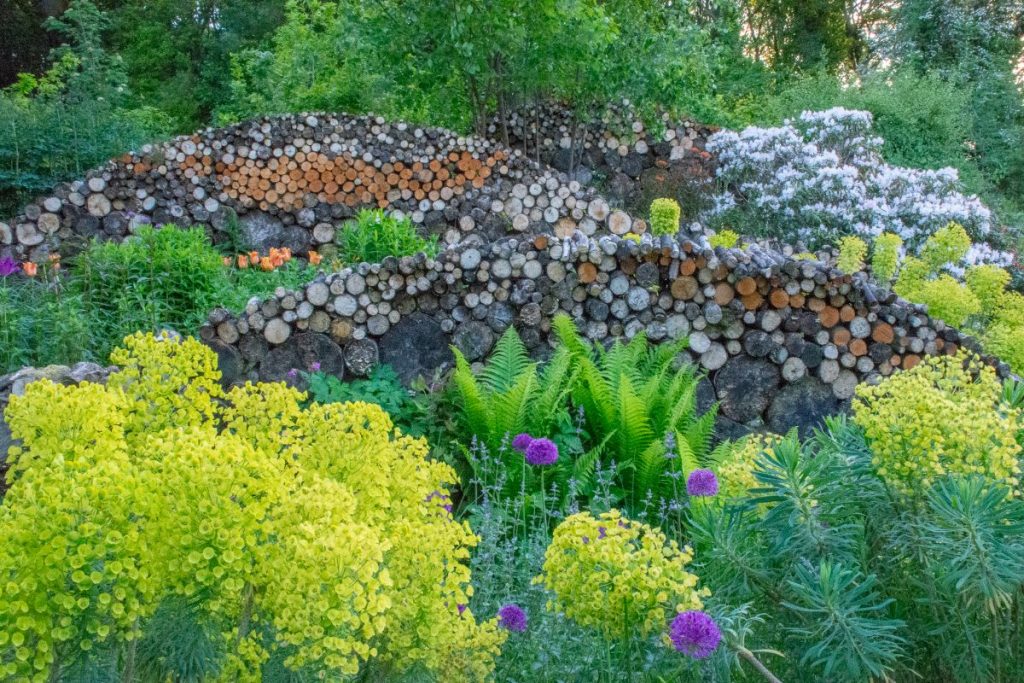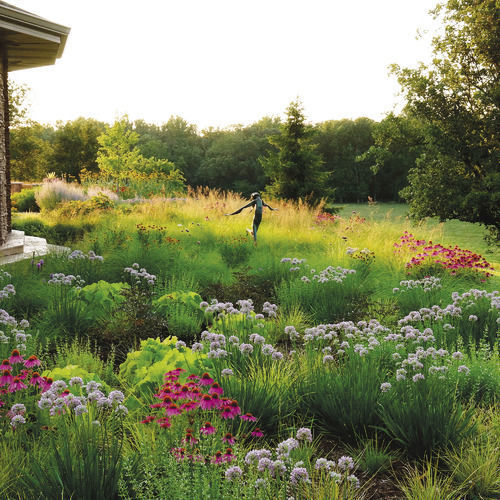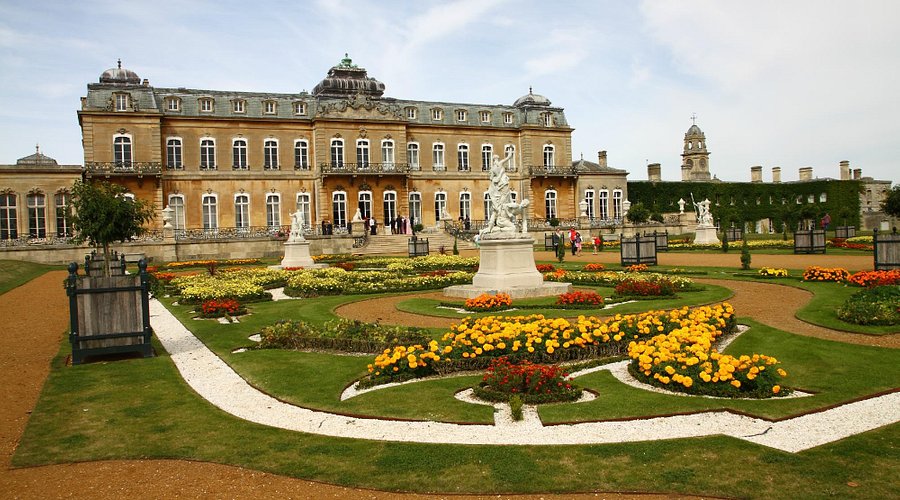The Gardens Trust’s final series of A History of Gardens will consider developments of the recent past. Starting with the arrival of the sleek, functional style of Modernism after the first world war, the talks will move on to explore contemporary thinking on the challenges of conserving and restoring historic parks and gardens, the rise of ecological perennial planting, the reappearance of allusive gardens and how a garden’s ‘spirit of place’ can guide sustainable plans for the future.
Themes and exemplars in garden-making are more difficult to identify without the benefit of distance and time. But considering recent ideas and approaches is bound to bring a thought-provoking end to our History of Gardens. This ticket link is for the sixth series of 5 talks in our History of Gardens Course at £35 or you may purchase a ticket for individual talks, costing £8 via the links on the website. (Gardens Trust members £6 each or all 5 for £26.25). Ticket holders can join each session live and/or view a recording for up to 2 weeks afterwards. Ticket sales close 4 hours before the first talk.
Attendees will be sent a Zoom link 2 days (and again a few hours) prior to the start of the first talk (if you do not receive this link please contact us) and a link to the recorded session will be sent shortly after each session and will be available for 2 weeks.
Talk 4 on May 20 is Avant Gardening in the Twilight of a Millennium, with Patrick Eyres. Ian Hamilton Finlay (1925-2006) coined the term Avant-Gardening, to evoke the process of synthesising art and horticulture at Little Sparta. In the centenary of Finlay’s birth, Little Sparta will be the focus. The allusion and association of Avant-Gardening provides common ground with four other contemporary gardens. Fragility is a parallel theme. Little Sparta (Ian and Sue Finlay), The Garden of Cosmic Speculation (Charles and Maggie Jencks) and Prospect Cottage (Derek Jarman) have survived the death of their creators; the Garden of History (Jim Pierce) and the Driftwood Garden (Brian Yale) have not.
Dr Patrick Eyres is editor and publisher of the unique New Arcadian Journal, in which artists and writers explore the landscape garden. The 56th and penultimate edition is underway. He has also published in numerous other books and journals and taught in the School of Art and Design at Bradford Collage. He served on the boards of the Wentworth Castle Heritage Trust, Leeds Art Fund, Garden History Society and Little Sparta Trust. On behalf of The Gardens Trust, he set up and chaired for the first ten years the annual New Research Symposium in Garden History. He continues to advise on the conservation of Little Sparta.









